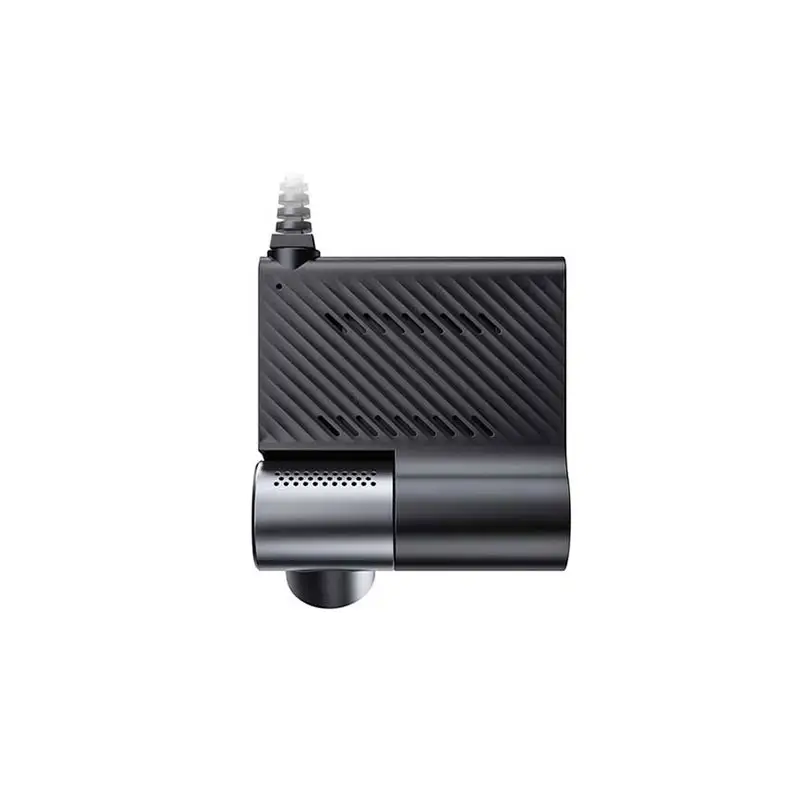Was ist eine 4G LTE verbundene Dashcam?
Dashcams werden immer ausgefeilter – und wir sprechen nicht nur von dieser Dashcam! Eine internetverbundene 4G LTE Dashcam ist eine Brancheninnovation, die der herkömmlichen Dashcam hochentwickelte Funktionen wie GPS-Tracking, Video-Kompression und Live-Streaming hinzufügt. Diese Dashcams nutzen ein Mobilfunknetz, um allen Benutzern Live-Video-Streaming, Remote-Überwachung, Sofortalarm per Smartphone von überall auf der Welt sowie Unterstützung bei der Sicherheit und Verteidigung zu ermöglichen. Im Gegensatz zu früheren Generationen, die auf lokalen Speicher oder eine Wi-Fi-Verbindung angewiesen waren, verwenden diese modernen Kameras mobile Datennetze, um Videos direkt hochzuladen. Nutzerbewertungen und Feldberichte zeigen, wie weit diese Technologie seit den klobigen VHS-artigen Geräten der 1980er Jahre bis hin zu den heutigen modernen, schicken Einheiten gekommen ist, wodurch leistungsstarke Fahrzeugüberwachung sowohl für große als auch für kleine Flottenmanager in Reichweite gerückt ist.
Jenseits grundlegender Aufzeichnung: Erklärung der Kerntechnologie
Erkundung des Kerns der 4G LTE-Dashcam-Technologie. Mit 3G- und 4G-LTE-fähigen Dashcams kann man mehr tun als nur einfaches Aufzeichnen. Durch die Nutzung von Mobilfunknetzen unterstützen sie Cloud-Speicherdienste, um die Sicherheit und Bequemlichkeit des Datenspeichers und -abrufs zu verbessern und das Risiko zu vermeiden, dass Aufnahmen verloren gehen, wenn das Gerät zerstört oder nicht verfügbar ist. Diese technologischen Verbesserungen steigern erheblich die Benutzererfahrung, da man Videos jetzt auf mobile Geräte streamen und Live-Feeds von überallher anzeigen kann. „Konnektivität ist ein entscheidendes Element des heutigen Fahrzeugsicherheitssystems dank seiner Fähigkeit, Warnungen sofort nach einem Ereignis zu senden, und der Fahrzeugmodem garantiert größere Sicherheit und Ruhe für Fahrer und Flottenmanager.“
Echtzeit-Fernzugriff & Live-Fahrzeugüberwachung
Die wichtigste Eigenschaft des Upgrades auf eine 4G LTE-Dashcam ist genau das, weswegen Sie alle hier sind: LTE-Connectivity, die den Nutzern eine kontinuierliche Überwachung dessen bietet, was mit ihren Fahrzeugen los ist – sei es für Sicherheit oder Flottenmanagement. Dies kann zu kürzeren Notfallszeiten führen, was durch erhöhte Sicherheit helfen könnte, Versicherungsprämien zu senken. Daten der Versicherungsgesellschaft zeigen einen Rückgang der Anspruchsdauer, was die Effektivität von Echtzeitwarnungen und -überwachungsfähigkeiten in LTE-Dashcams demonstriert. Schnelle und genaue Dokumentation von Vorfällen bedeutet, dass Nutzer bei der Lösung eines Falls im Vorteil sind.
Verbesserte Cloud-Speicherung & Sofortige Ereigniserkennung
Cloud-kompatible 4G LTE Dashcameras könnten eine sichere Möglichkeit zur Speicherung von Aufnahmen sein, wodurch sichergestellt wird, dass Videoaufnahmen bei Bedarf wiederhergestellt werden können. Dies legt auch Sorgen über Datenverlust durch Schäden oder Diebstahl einer Kamera zu ruhe. Ein Aspekt dieser Kameras ist die sofortige Ereigniserkennung, die schnelle Benachrichtigungen an die Polizei im Falle von (zum Beispiel Unfällen oder Diebstahl) sendet. Es gibt viele Beispiele aus dem realen Leben, die die Vorteile einer solch sophistizierten Unfallerkennung und Cloud-Speicherung beweisen: mehrere Fallstudien belegen bereits, wie sehr dies während des Schadensersatzprozesses oder einer Unfalluntersuchung geholfen hat. LTE Dashcams bieten einen großen Vorteil bei der effizienten Bearbeitung von Autounfällen, indem sie Videos sicher speichern und Benutzern mit hochgeladenem Material sofortige Benachrichtigungen liefern.
Zusammenfassend erweitern die Vorteile eines Upgrades auf eine 4G LTE Dash Cam die Grundfunktionen der Aufnahme um ein breites Spektrum an Sicherheits- und Überwachungsfunktionen, die einen ständigen Schutz für Ihr Fahrzeug und Ihre Daten gewährleisten.
Leistungsverbesserungen im Vergleich zu herkömmlichen Modellen
Überwindung der Einschränkungen von nicht vernetzten Dash Cams
Herkömmliche Dash Cams waren lange Zeit ein festes Element der Fahrzeugsicherheit, jedoch mit erheblichen Einschränkungen, darunter dem Fehlen einer Verbindung oder begrenztem Speicherplatz. Diese Kameras speichern normalerweise lokal und speichern Videos auf einer SD-Karte ab, aber Sie werden feststellen, dass sich Ihre SD-Karte schnell füllt und formatiert werden muss, wenn Sie nicht darauf achten. 4G LTE Dash Cams bieten dagegen kostenlosen Cloud-Speicher für alle Aufnahmen, sodass diese sicher gesichert und bei Bedarf verfügbar sind.
Konnektivitäsoptionen Was 4G-LTE-Dashcams so wertvoll macht, ist ihre Fähigkeit zur Echtzeitübertragung und Fernzugriff. Das bedeutet, dass Verbraucher jederzeit von Smartphones oder Computern aus eine Live-Übertragung ihres Fahrzeugs remote ansehen können, was die durch frühere Modelle entstandene Konnektivitätslücke schließt. Zahlreiche Studien zeigen, dass Nutzer eine deutliche Präferenz für vernetzte Dashcams gegenüber nicht vernetzten Versionen haben, wobei das Thema erhöhte Sicherheit als Hauptmotiv genannt wird.
Überlegene Videoqualität und Datenauslesbarkeit
Ein Teil der Leistung der 4G-LTE-Dashcam kann auf eine höhere Videoqualität und verbesserte Datenverfügbarkeit zurückgeführt werden. Diese Premium-Modelle bieten eine bessere Bildauflösung und -klarheit im Vergleich zu älteren Modellen, um sicherzustellen, dass jeder Moment aufgezeichnet wird – perfekt für Beweiszwecke nach Unfällen oder Vorfällen. Benutzerberichte zitieren oft die Zufriedenheit der Nutzer mit den offensichtlichen Verbesserungen in der Videobandqualität, die eine bessere Dokumentation ermöglicht und es einfacher macht, wichtige Fakten zu identifizieren.
Die Möglichkeit, diesen hochwertigen Film über cloudbasierte Systeme zu nutzen, stellt auch einen großen Durchbruch bei der Datendurchdringbarkeit dar. Dank Internetzugang können Nutzer den Film fast überall extrahieren und verwalten sowie auf Anfrage Videos mit Versicherungen oder Behörden teilen. Die hohe Zufriedenheit der Nutzer mit dem einfachen Datenzugriff der 4G-LTE-Dashcams beweist deutlich, dass sie deutlich besser sind als herkömmliche Dashcams.
Wichtige Überlegungen vor dem Upgrade
Verstehen von LTE-Abo-Plänen und Kosten
Zunächst ist es wichtig zu verstehen, dass es verschiedene Abo-Pläne gibt, bevor man auf eine 4G LTE-Dashcam upgrade. Hersteller bieten oft eine Vielzahl von Plänen an, die möglicherweise Funktionen wie Echtzeitwarnungen, Streaming-Videos und unterschiedliche Datenvolumengrenzen umfassen. Diese Pläne haben normalerweise einen monatlichen Gebührssatz, der je nach gewählten Funktionen und dem Datenaufkommen, das durch Ihre Fahrweise verbraucht wird, variieren kann. Beim Abwägen von Kosten-Nutzen sollte auch überprüft werden, ob Versicherungsrabatte möglich sind; einige Versicherer berücksichtigen eine vernetzte Dashcam bei der Preisgestaltung ihrer Policen. Schließlich können Rezensionen und Marktvergleiche führender LTE-Pläne Ihnen helfen, einen Plan auszuwählen, der den höchsten Nutzen für Ihre Bedürfnisse bietet, anstatt für Funktionen zu bezahlen, die Sie nicht nutzen, sodass Sie nicht mit Daten übergeldet werden, die Sie nicht benötigen.
Vereinfachte Installation und Stromanforderungen
Die Installation einer 4G LTE-Dashcam kann einfach oder kompliziert sein, je nachdem, wie Sie vorgehen. Leser, die handwerklich begabt sind und eine Eigenbau-Lösung vorziehen, können sich dazu entscheiden, den Herstelleranweisungen zu folgen, um die Dashcam zu montieren und zu verlegen. Unabhängig davon, ob Sie es selbst machen oder einen Fachbetrieb beauftragen, verspricht ein professioneller Service eine bessere Platzierung der Kameras und der Verkabelung, da es tatsächlich besser ist, die Stromversorgung sicherzustellen. Die Mehrheit der LTE-Dashcams muss direkt an die Stromquelle des Fahrzeugs angeschlossen werden, um rund um die Uhr zu funktionieren. Der Kompromiss zwischen dem VCC (Vehicle Constant Current) des Fahrzeugs und einem externen Akku-Paket ist wichtig und beeinflusst auch die Akkulaufzeit und Flexibilität. Mit einer Checkliste oder All-in-One-Werkzeugen kann die Implementierung weniger aufwendig und erfolgreicher gestaltet werden.
Sicherstellung der Zukunftsfähigkeit Ihrer Fahrzeug-Sicherheit
Mehr Sicherheitsfunktionen für das neue Zeitalter müssen zukunftssichere Fahrzeugtechnologien wie die 4G LTE Dashcam sein. Diese Kameras haben seitdem einen langen Weg zurückgelegt und verfügen nun über Funktionen wie Live-Zugriff, Cloud-Speicherung und Fernüberwachung. Diese Trends werden geleitet, indem ein solides Überwachungssystem aufgebaut wird, das bei der Beweissuche bei Vorfallen unterstützt und leicht mit den neuen Automobiltechnologien Schritt hält, um eine sichere und flexible Fahrerfahrung zu gewährleisten.
FAQ-Bereich
Wie unterscheidet sich eine 4G LTE-verbundene Dashcam von einer traditionellen Dashcam?
Eine 4G LTE-verbundene Dashcam nutzt Mobilfunknetze für die Echtzeit-Videostreaming, Fernüberwachung und sofortige Datenuploads, während traditionelle Dashcams hauptsächlich auf lokalen Speicher oder Wi-Fi ohne direkte Verbindung angewiesen sind.
Was sind die wichtigsten Funktionen einer 4G LTE Dashcam?
4G LTE-Dashcams bieten Funktionen wie Echtzeit-Remotezugriff, erweiterten Cloud-Speicher, Live-Fahrzeugüberwachung, überlegene Videoqualität und sofortige Ereigniserkennung, wodurch umfassenden Fahrzeugenschutz und Datensicherheit gewährleistet wird.
Gibt es Abonnementgebühren für 4G LTE-Dashcams?
Ja, 4G LTE-Dashcams erfordern in der Regel ein Abonnement für Funktionen wie Echtzeitbenachrichtigungen und Livestreaming, wobei die Kosten je nach Datenvolumen und den durch das Paket bereitgestellten Funktionen variieren.
Ist eine professionelle Installation für 4G LTE-Dashcams notwendig?
Obwohl eine Selbstinstallation möglich ist, stellt eine professionelle Installation eine optimale Kamerapositionierung und Verkabelung sicher, insbesondere für die stetige Stromversorgung, die benötigt wird. Die Konsultation von Herstelleranleitungen oder Online-Ressourcen kann dabei helfen.
Inhaltsverzeichnis
- Was ist eine 4G LTE verbundene Dashcam?
- Jenseits grundlegender Aufzeichnung: Erklärung der Kerntechnologie
- Echtzeit-Fernzugriff & Live-Fahrzeugüberwachung
- Verbesserte Cloud-Speicherung & Sofortige Ereigniserkennung
- Leistungsverbesserungen im Vergleich zu herkömmlichen Modellen
- Überwindung der Einschränkungen von nicht vernetzten Dash Cams
- Überlegene Videoqualität und Datenauslesbarkeit
- Wichtige Überlegungen vor dem Upgrade
- Verstehen von LTE-Abo-Plänen und Kosten
- Vereinfachte Installation und Stromanforderungen
- Sicherstellung der Zukunftsfähigkeit Ihrer Fahrzeug-Sicherheit
- FAQ-Bereich



